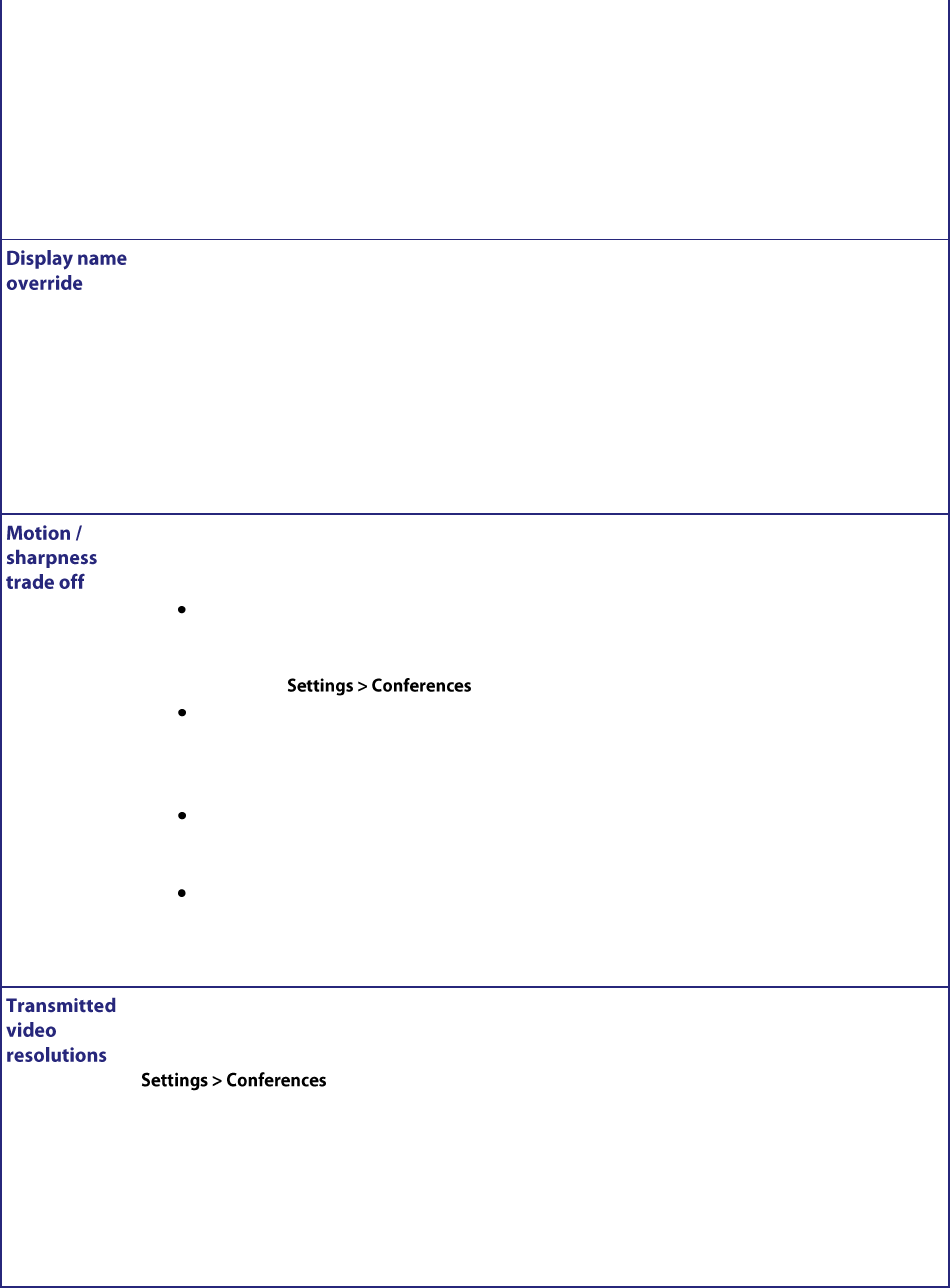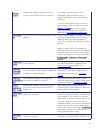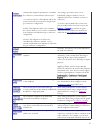
91
endpoint. In this case, to use call-in match
parameters, leave the IP address field blank and
enter the correct username. The call will be
matched by username.
When using LCS, the username that will be
matched is the user's display name (e.g. Peter
Rabbit) rather than the sign-in name
(bluecoat@codian.com).
The name that will be displayed in a conference
as a label for this endpoint.
The name you enter here will override any
default name configured on the endpoint. It will
also override any other default name that might
appear for an endpoint. For example, an
endpoint's default name can be the name of the
gateway through which the call was placed, or if
the endpoint is called-in via a gatekeeper, its
E.164 number.
Note that once an endpoint has connected, you
cannot change the display name.
Choose whether to use the box-wide setting for
motion/sharpness trade off, or configure an
individual setting for this endpoint. Choose from:
Use box-wide setting: this is the default
value. In this case, the endpoint will use
the motion/sharpness tradeoff setting
from the page
Favor motion: the MCU will try and use a
high frame rate. That is, the MCU will
strongly favor a resolution of at least 25
frames per second
Favor sharpness: the MCU will use the
highest resolution that is appropriate for
what is being viewed
Balanced: the MCU will select settings
that balance resolution and frame rate
(where the frame rate will not be less
than 12 frames per second)
The settings for motion (frames per second) and
sharpness (frame size or resolution) are
negotiated between the endpoint and the MCU.
This setting controls how the MCU will negotiate
the settings to be used with this endpoint.
Choose the setting for transmitted video
resolutions from the MCU to this endpoint. This
setting overrides the unit-wide setting on the
page.
Retain the default setting (use box-wide setting)
unless you are experiencing problems with the
display of certain resolutions by this endpoint.
Endpoints advertise the resolutions that they are
able to display. The MCU then chooses from
those advertised resolutions, the resolution that it
will use to transmit video. However, some
endpoints do not display widescreen resolutions
optimally. Therefore, you might want to use this
setting to restrict the resolutions available to the
MCU for transmissions to this endpoint.


















